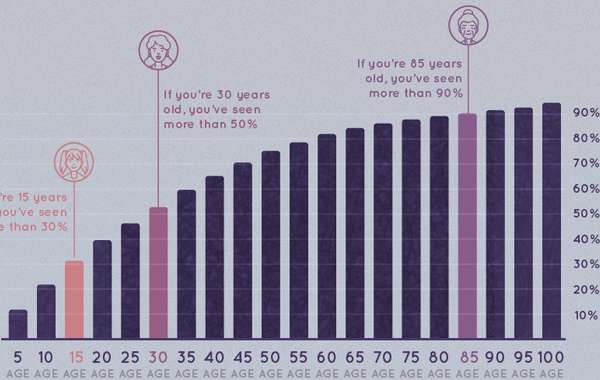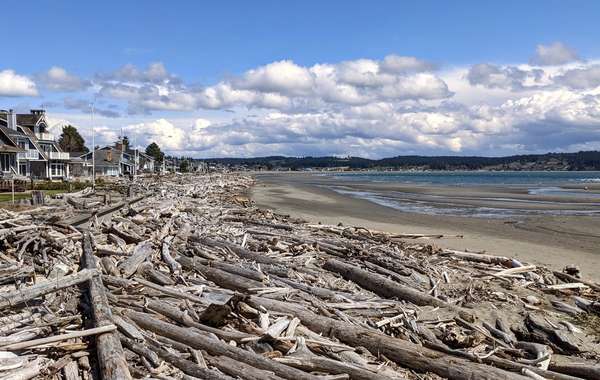What do whales listen to? 'Pod' casts...
Talking of which, I listened to a fascinating podcast recently explaining how the carbon capture potential of whales and supporting international efforts to restore whale populations around the world is one of the simplest ways to fight climate change. The podcast was hosted by Ralph Chami, Assistant Director in the IMF's Institute for Capacity Development and Michael Fishbach, the Executive Director of the Great Whale Conservancy - which is an unlikely combination, though as it turns out mixing mathematics with whales turns up some interesting facts and ideas for promoting carbon-reduction - who knew!

To set the scene, the podcast was recorded during a beautiful day out on Michael's small research boat in Mexico, when he and Ralph sat down to discuss the value of whales and the imperative role they play in sustaining our planetary ecosystem. Although my guess is that Ralph thought he was just out to enjoy a boat trip at the start, before Michael got into his groove about whale poop... (Nice one Michael, we all need a passion ;-) !
Ralph Chami also happens to be a semi-professional guitarist for over 40 years, music to the ears of Ecohome's own Guitar Heros, Mike and Max - but I digress - please, read on...
Whale, whale, whale - what's all this then?
Ralph Chami is a career economist with the IMF, so hearing about the "Whale Pump" effect from the enthusiastic and appropriately named Mr Fishbach, must have given him food for thought. On his return to terra firma and back to work, he and an IMF team started crunching the numbers on whales, their huge poops, and their effect on carbon sequestration.
So what on earth - (well, in the ocean) - we all asked, is a "Whale Pump?" A Google search initially gave a large selection of bilge-pump options for boats, (which will no doubt follow me around my online browsing for the next 2 weeks). But in amongst the blue and red colored nautical paraphernalia was an in-depth article all about this natural carbon-sequestering phenomenon - which was as fascinating as it was kind of stomach churning.
It's all to do with huge quantities of whale poop in our oceans, and the phytoplankton that eat it, which in turn are eaten directly or indirectly by just about everything in the ocean. Nice.

Makes me think of the joke about why not to drink water, but I'm going to concentrate on the whales - which it turns out are even more fascinating and worthy of our attention than I'd realized, and that prompted me to write this article to share with the www. "Yay" I thought - I get to talk sh!t for a good cause!
Whales are Awesome - spending time on the West Coast and around Hawaii, I count myself as very fortunate to have experienced them in the wild, and they are awe-inspiring with their sheer size and grace. Turns out that they are also "huge into ocean conservation and climate action" - what's not to love about whales?!
The whale pump - helping climate change
Whales feed deep in the ocean then return to the surface around every 60 minutes or so to breath, digest, and, well… Poop. Apparently this buoyant "floater style" whale poop is rich in nutrients such as iron, nitrogen, and phosphorus, (though excuse me if I don't whip out my frypan). These nutrients may not sound overly yummy to us land-dwelling bipeds, but they are exactly what phytoplankton need to grow, which in turn absorbs carbon dioxide in the oceans' surface waters. This is the natural mechanism that allows for significant quantities of carbon to be naturally drawn into the oceans from the atmosphere.
The nutrients in whale poop are also transported across oceans as whales migrate between high latitude feeding grounds and low latitude breeding grounds, and the churn effect of their massive bodies swimming also stirs up other nutrients that the phytoplankton thankfully love. This brings an influx of nutrients to otherwise nutrient-poor tropical waters, and more nutrients mean more phytoplankton, which in turn absorb more carbon dioxide. Just like human and animal poop of all varieties making great organic fertilizer on-land - whale poop fertilizes the oceans - and the more phytoplankton, the more food for whales and fish, which can only be good news for us humans and climate change.

There are even more ways that whales help trap carbon in the ocean. "In addition to being the largest animals on the planet, whales are among the longest-living, with some living over 150 years," says Heidi Pearson, a marine biology professor at the University of Alaska Southeast and Fulbright Scholar at GRID-Arendal. This long lifespan means that a lot of carbon is trapped in a large whale for a long time. Then, once these animals die, their carcasses sink to the seafloor, bringing a lifetime of trapped carbon with them. Carbon on the seafloor is then essentially buried for thousands to millions of years because the carcasses and skeletons take a very long time to decompose down there.
So how much does whale poop help carbon reduction?
Short answer - A lot ! "The lungs of the planet are actually in the ocean," concludes Chami. The discussions and calculations around this Whale, Whale-Poop & Phytoplankton carbon reduction planetary role have been extensive and thorough, as you'd expect from a team from the IMF, but the key elements and facts are as follows:
- Ocean phytoplankton captures at least 37 billion tons of carbon dioxide (CO2) each year – at least four times what the Amazon does
- Phytoplankton generates about 50 percent of all oxygen produced
- Each adult 'ex-whale' sequesters an additional 33 tons of CO2 on average (with an average lifespan of 150 years), for centuries. By comparison, a tree absorbs about 22 kilograms of CO2 per year - so a whale is equivalent to about 1500 trees
- The IMF-led team calculated the value of whales at $2 million each ! Which 'vastly exceeds the value of whale meat through hunting', Chiami said "If whales were allowed to return to their pre-whaling numbers—capturing 1.7 billion tons of CO2 annually—it would be worth about $13 per person a year to subsidize these whales’ CO2 sequestration efforts"
- All of the world's whales have a value of over $1 trillion
- Increasing phytoplankton populations in oceans by only one percent would be the equivalent of adding another two billion mature trees to the planet
So yeah, A LOT.
Whales then, what's the poop?
Unless you've been living under a rock, you've probably noticed that carbon reduction, carbon sequestration & carbon offset schemes are becoming big business as cities, states and countries scramble to meet carbon reduction goals. If Chami & Fishbach have their way, these leviathans of the ocean may constitute a giant natural carbon offset business opportunity!
Any schemes to increase whale populations may cut into profit margins, I hear the capitalists cry, but wait! This is why it was so important to monetize the value of individual whales. Hats-off to Chami who believes presenting whale conservation around economic benefits will enlist powerful organizations like the World Bank, the IMF and United Nations to help coordinate whale population recovery efforts or manage a global whale fund. Governments around the world collected $44 billion in carbon pricing in 2019 so, in theory, there is ample money available to use it where it is most needed for maximum results.
Collisions between ships and whales, for example, a major cause of premature whale deaths, can be dramatically reduced as demonstrated in Boston Harbor, where slight changes made to navigation routes in 2007 decreased whale and ship encounters by over 65 percent. Such changes aren’t free, but the extrapolated figures provided by Chami and the IMF team of the value of whales to carbon reduction put these trade-offs in perspective.

Maersk is the largest container shipping company in the world, operating over 786 vessels that travel to 116 countries - making them potentially one of the largest single companies responsible for whale collisions.
As operating revenue for Maersk in 2018 was $39 billion - this is less than four percent of the $1 trillion in climate value calculated to be provided by the world’s remaining great whales. And in fairness Maersk do take sustainability into account, in 2011-12, Maersk Line cooperated with the US Navy on testing 7-100% algae biofuel on Maersk Kalmar as a pilot scheme, then from 2007-2014 by optimizing ship speeds, Maersk Line reduced its CO2 emissions by 40% or 11 million tons, about the same reduction as the rest of Denmark.
Maersk also set a goal in December 2018 to be carbon neutral by 2050, though as a consequence of their importance to moving the bulk of the world's trade volume in 2017, the company's ships still emitted 35.5 million tons of CO2. They hope to eliminate that in the future by using biofuels to power the fleet - but maybe Maersk could receive additional financial encouragement to optimize routes around whale migration paths too? Remember, money talks loudest where industrialists are concerned.
The huge monetary value of whales calculated as a means of carbon sequestration mechanism raises new and interesting questions about how cost and compensation could be allocated for promoting natural solutions as carbon reduction and carbon-sequestration schemes.
Promoting "Save the Whales" on a global scale, because they're fascinating, magnificent and peaceful creatures we humans should feel privileged to coexist with, sounds like a win to me. Add in the fact that these humungous floating poop factories turn out to be worth trillions of dollars as natural carbon-sequestration schemes, and I smell a major win/win! But who would oversee such a scheme and how would compliance be enforced?
Those are hard questions at the heart of all global climate finance negotiations and well beyond my pay-grade or influence, but they are the type of questions necessary to help policymakers get serious about meeting climate targets by natural and laudible means - and to see the true value of majestic whales and the “blue carbon” they capture. To my mind, helping the recovery and a flourishing population of great whales should be considered a serious contender “no-tech” type of geoengineering to scale up removing existing CO2 from the atmosphere.
Here's hoping that someone with influence on a global scale sees this article, and reaches out to the enthusiastic Michael Fishbach and Ralph Chami to produce an unstoppable force for change - share away folks, mobilize, and it might just happen! Any comments and feedback are welcomed below...
Now you know more about the potential for carbon-offset schemes and carbon reduction by helping whale populations and how they can help offset the carbon footprint of eco homes & sustainable construction...Find more pages about sustainable and resilient green building techniques here :
Find more about green home construction in the Ecohome Green Building Guide pages and consider supporting the Great Whale Conservancy here - Also, learn more about the benefits of a free Ecohome Network Membership here. |





































Comments (0)
Sign Up to Comment